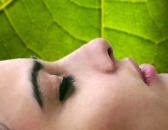How much sleep do we really need? A long asked question that has - after a very long study - been answered... we think.
David Dinges, from the University of Pennsylvania, is a sleep and chronobiology researched. He has been testing large groups of people in the lab to find out what happens to people when they have specific amounts of sleep each night.
Three groups were set up where some slept for 4 hours, 6 hours of 8 hours. And over two weeks the groups had to complete certain tasks designed to measure alertness, mental aptitude etc.
"Every two hours during the day, the researchers tested the subjects’ ability to sustain attention with what’s known as the psychomotor vigilance task, or P.V.T., considered a gold standard of sleepiness measures. During the P.V.T., the men and women sat in front of computer screens for 10-minute periods, pressing the space bar as soon as they saw a flash of numbers at random intervals. Even a half-second response delay suggests a lapse into sleepiness, known as a microsleep." *1
"All told, by the end of two weeks, the six-hour sleepers were as impaired as those who, in another Dinges study, had been sleep-deprived for 24 hours straight — the cognitive equivalent of being legally drunk." *2
So heres the thing. Get more sleep! There is too much research today suggesting that sleep is good (understatement alert) that it makes sense to get to bed early.
The links below lead to more explanatory information and yet the answer to the question: How much sleep do we need? seems to be obvious... lots.
*1: http://www.nytimes.com/2011/04/17/magazine/mag-17Sleep-t.html?_r=0
*2: http://www.bakadesuyo.com/2011/04/how-little-sleep-can-you-get-away-with/
Rest well
Aaron




